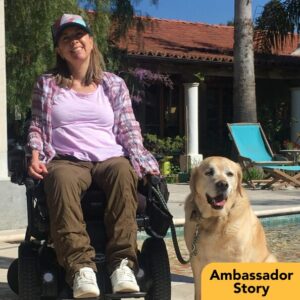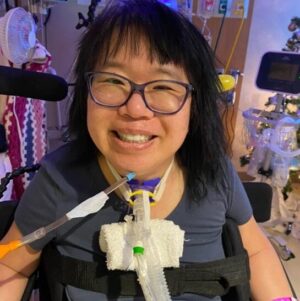Liz Barnett started fundraising in 2021 just a few months before a life-changing heart and liver transplant. She became a client Ambassador for Help Hope Live in 2023.
We asked Liz how fundraising has made a difference in her transplant journey—and how serendipity brought her even closer to our mission.
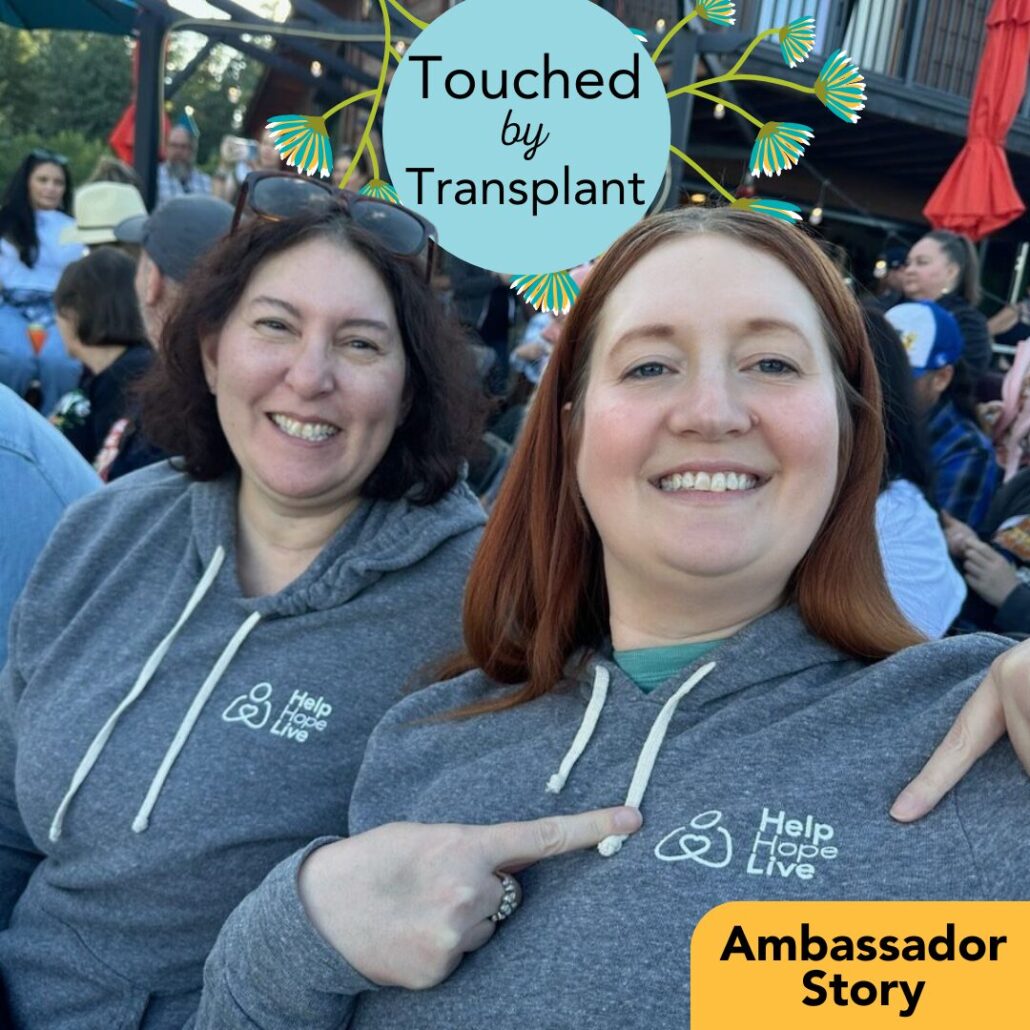
How does your daily life look different today than it did before your transplant?
I have so much more energy and stamina. I can climb stairs without getting winded. I can play hide-and-seek with my nephews. I’ve been able to return to working after six years. I can walk, talk, and breathe all at the same time.
I spend a lot more of my day living instead of lying in bed.
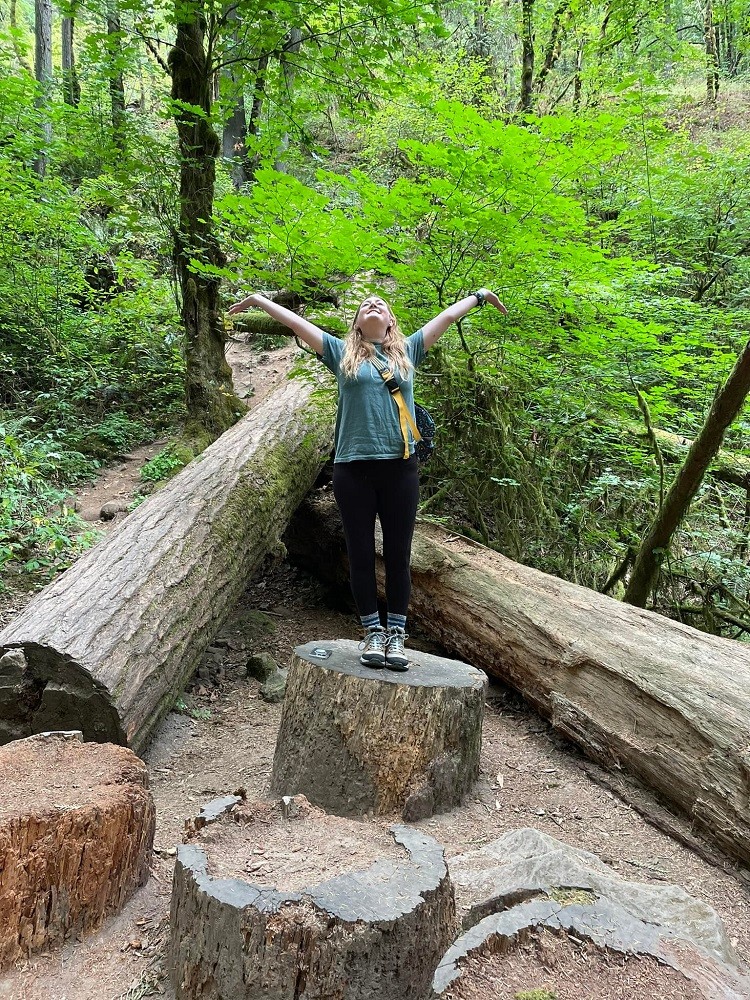
One of my favorite song lyrics is, “If I live the life I’m given, I won’t be scared to die.” I’ve always tried to live life to the fullest that I can, but even more so now that I have been given life twice.
My priorities have changed: I moved back to Missouri to live next door to my parents and down the road from my brother and his family. Instead of trying to return to my former stressful career, I chose a job that gives me work-life balance and flexibility.
I try to live every day with gratitude.
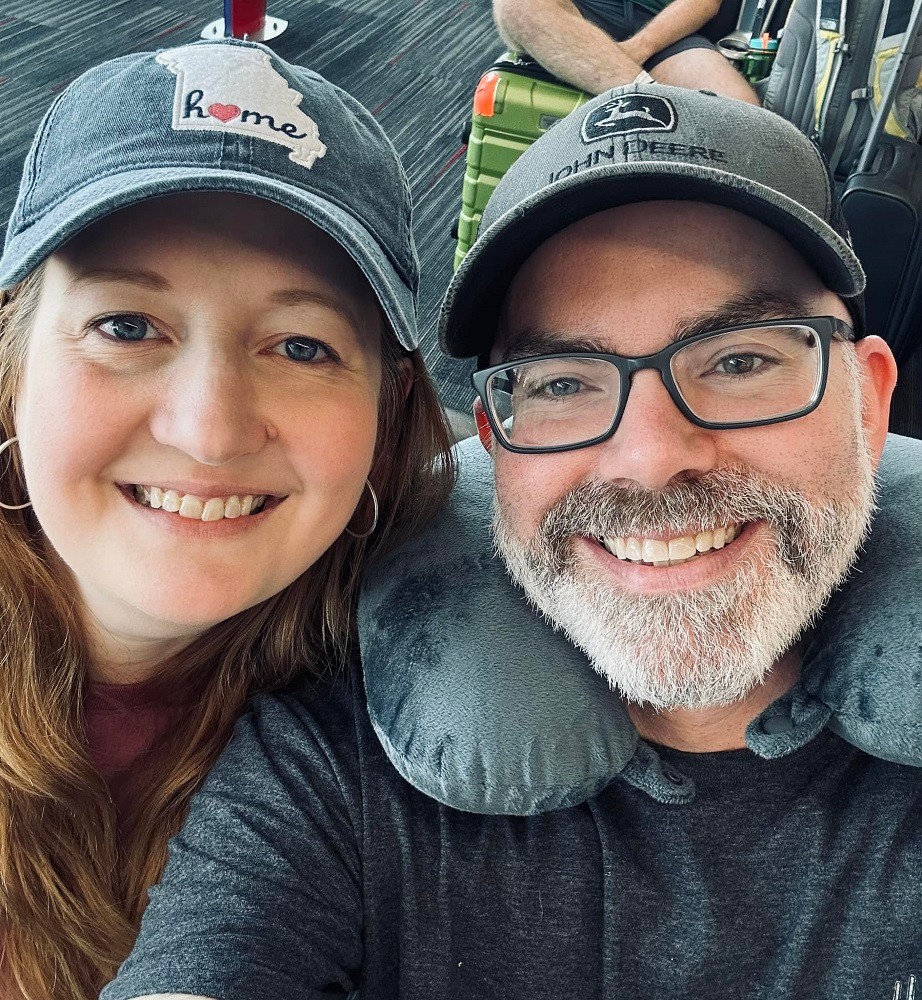
What was it like to spend time living in a hospital while waiting for a transplant?
I had a really hard time with it. I was a high-risk transplant patient, so I was terrified I wasn’t going to survive the surgery and that the end of my life would be spent in a hospital.
I just kept reminding myself that hospital life was temporary so that I could gain years—hopefully decades—of life with a much better quality of living than I had ever experienced.
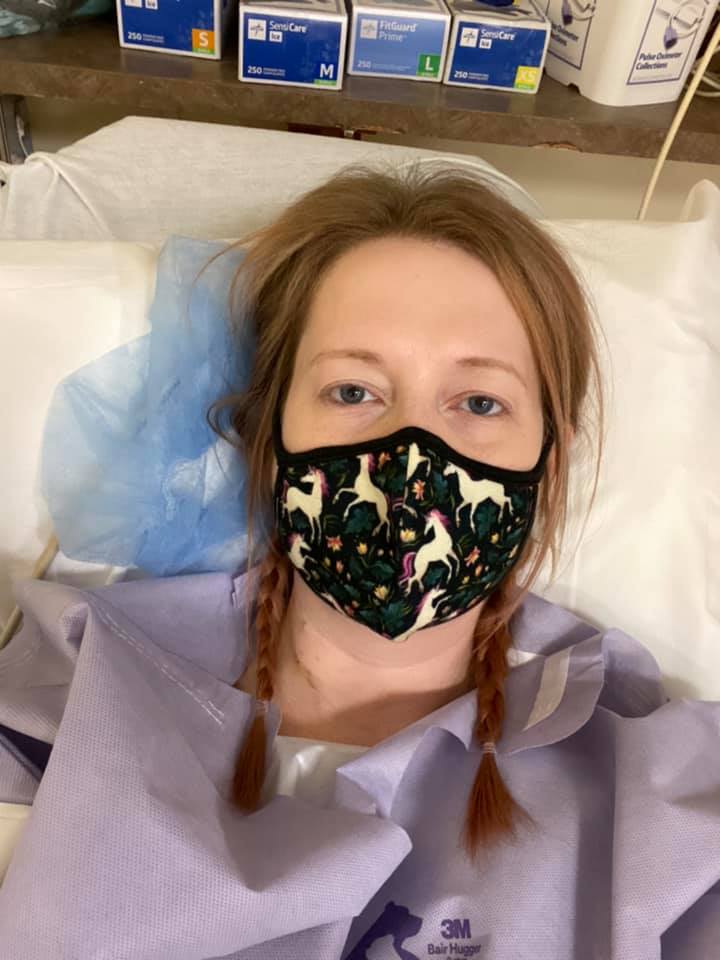
What are some of the realities of life after transplant that people may not be able to see from the outside?
A transplant is not a cure—it is trading a fatal illness for one that is more manageable.
Transplant life is so beautiful, but it can be hard. I work really hard to honor my gift and protect my organs. For people who don’t understand that, some of my actions may come off as dramatic.
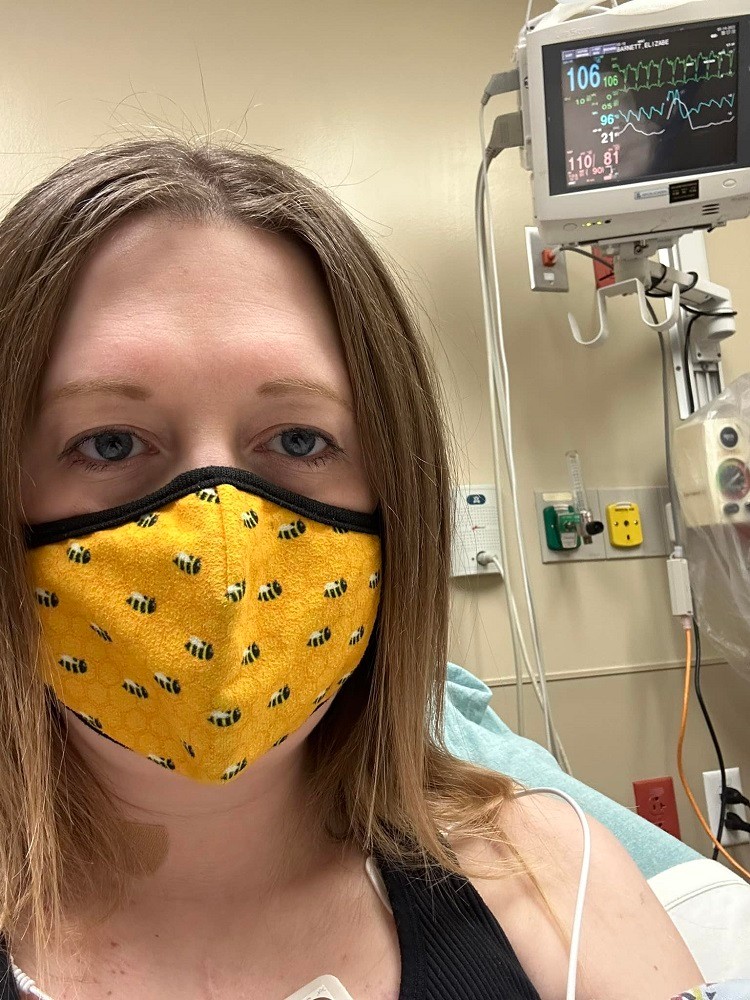
Being immunocompromised includes significant restrictions, including dietary restrictions. For example, I’m not supposed to eat anything fresh or uncooked at a restaurant such as a salad. No deli meat without heating it up. No rare steaks or sushi. It may seem from the outside that I am being picky over where we eat, but really it’s because I’m trying to keep myself safe.
Even though I took every precaution post-transplant, I still ended up catching a fungal infection in my lungs. That’s just one example of something most people never have to deal with or worry about that is just part of life for transplant recipients like me.
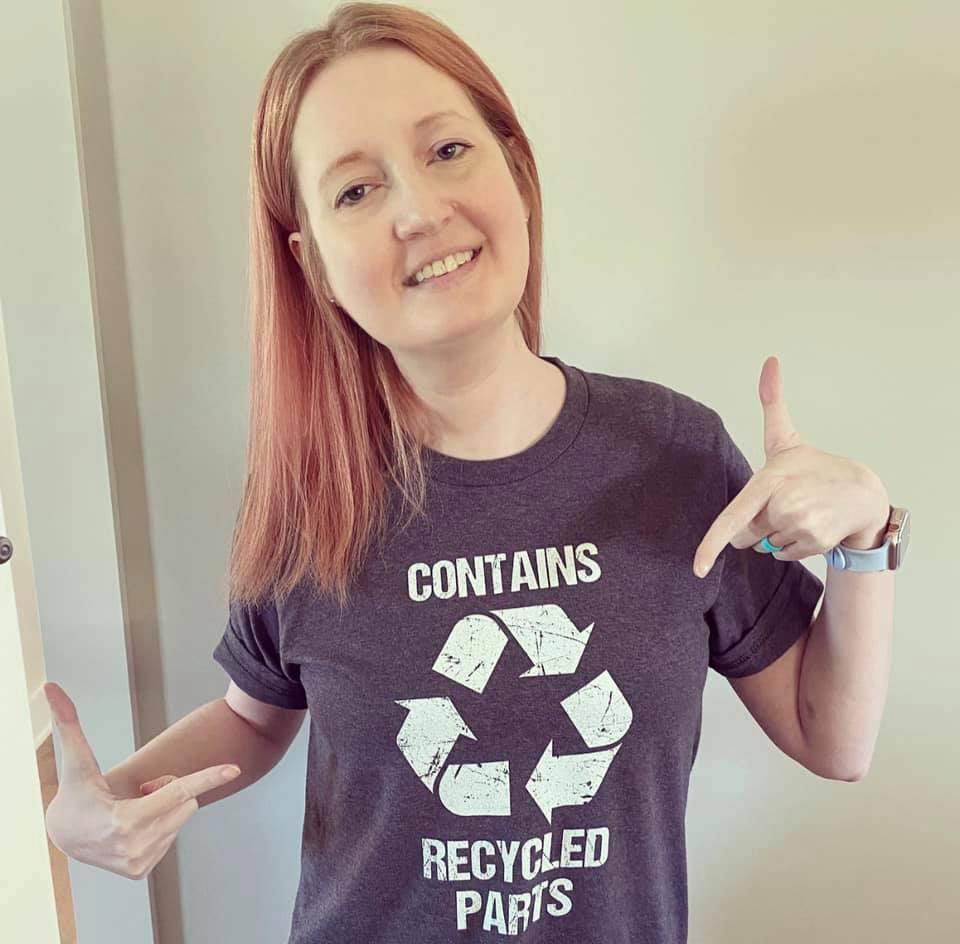
What has the transplant journey been like for your family?
My husband and I were newlyweds when I started being evaluated for transplant. He married me knowing that I was going to need a double organ transplant in the very near future.
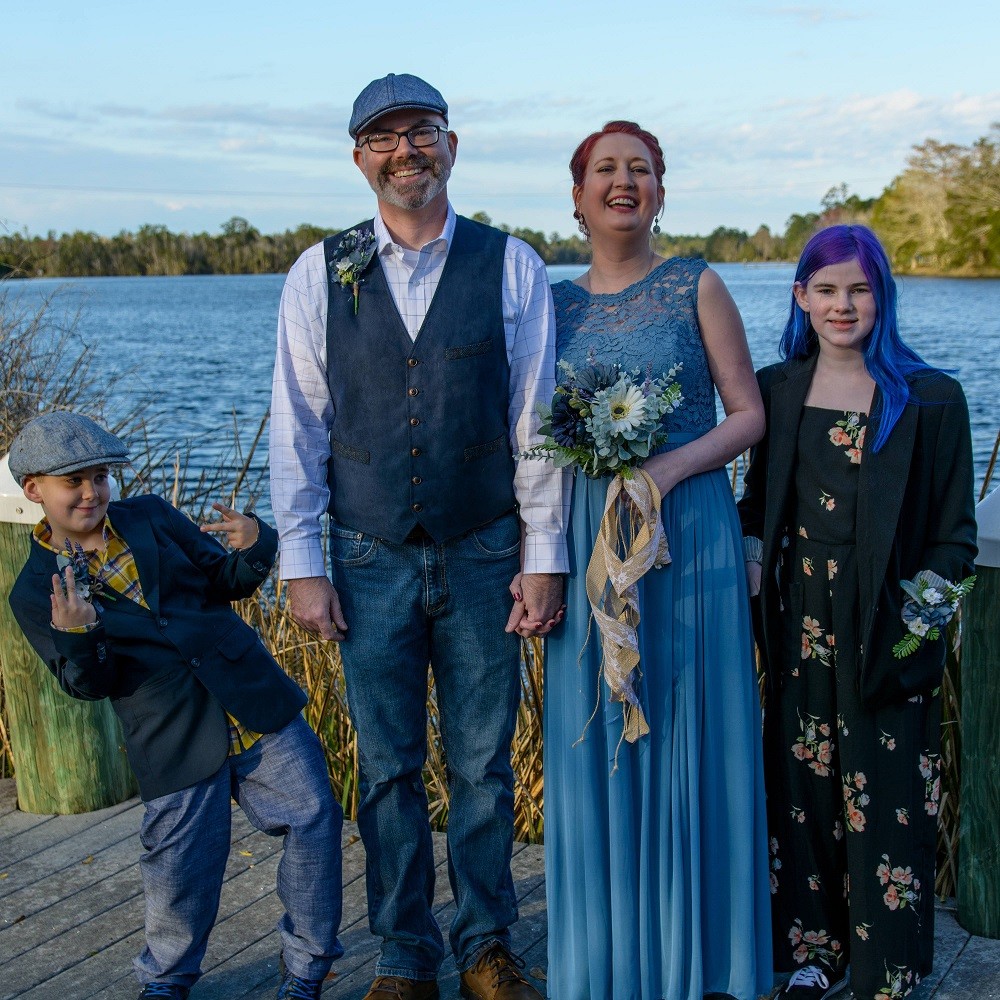
Going through my transplant journey has brought us so much closer. He has seen me at my absolute worst and held my hand through it all.
My mom spent most of her life worried that she was going to have to bury me. I think she has really loved seeing how much more I can do now—even more than when I was a teenager. While she still worries about me, she seems to have a weight lifted off her shoulders.
How do you plan to celebrate your transplant anniversary this year?
I will be seeing my favorite band at Red Rocks for a three-night run.
I’ll put my new organs to use climbing the stairs and dancing under the stars.
My transplant bestie (another heart/liver patient who was transplanted a month after me) will be taking an annual “organniversary” trip together, this time to Northern California.
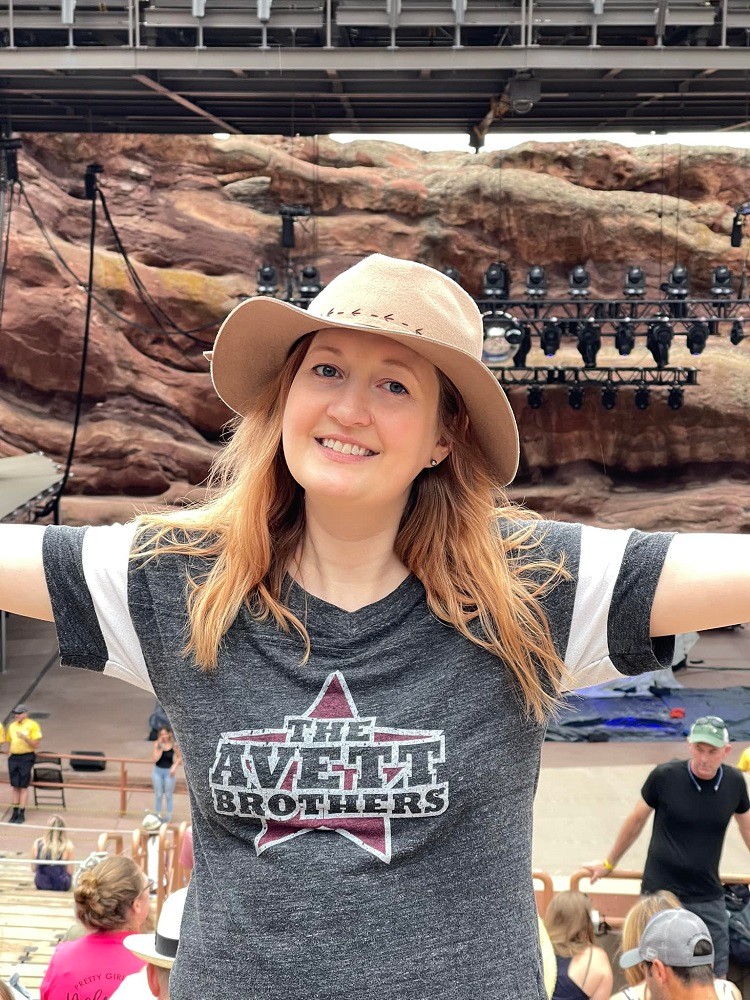
What are some of the transplant-related medical costs you’ve had to take on?
Medical bills will always be a line item in my budget. I will never not owe money to my transplant center.
Pre-transplant, one of the big reasons I needed to fundraise was the cost associated with medical relocation to an expensive city while maintaining our primary residence at home with my step-kids, who were still in school.
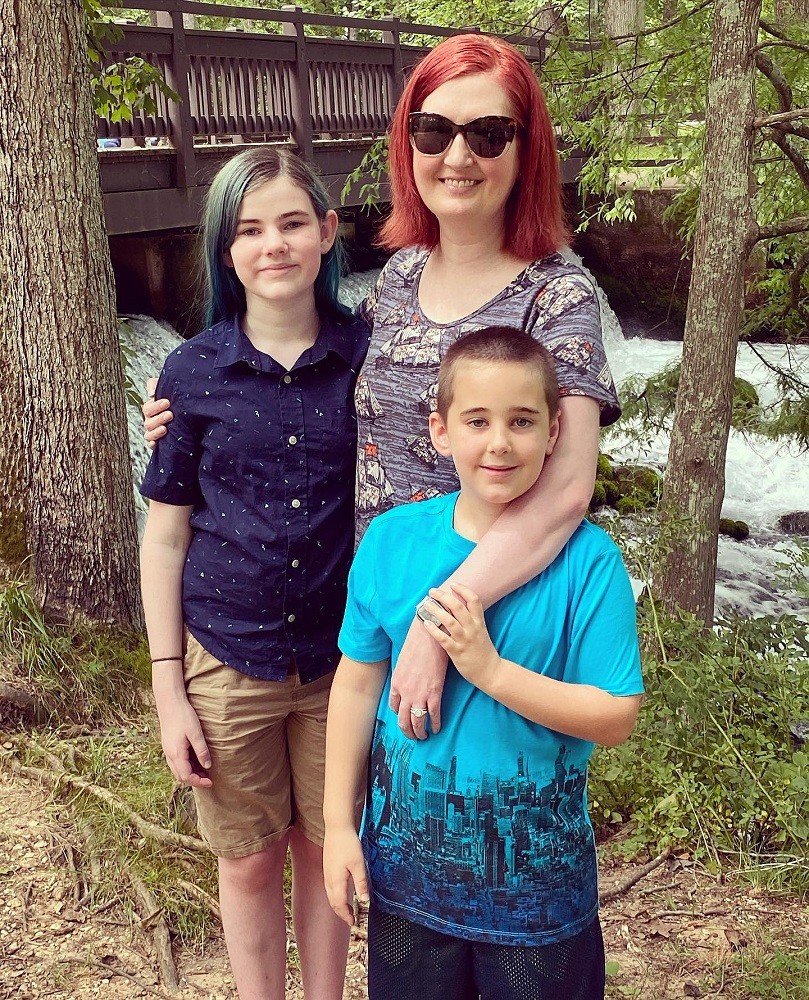
I take less medications than I did pre-transplant. However, those meds cost more.
Even though I returned to work and have insurance through my spouse, I have to maintain Medicare to cover transplant-related meds and to continue to receive care at my transplant center, which is out of network.
The meds I needed to treat a fungal infection were over $6,000 per month. It took my doctor making two appeals before insurance would help cover them.
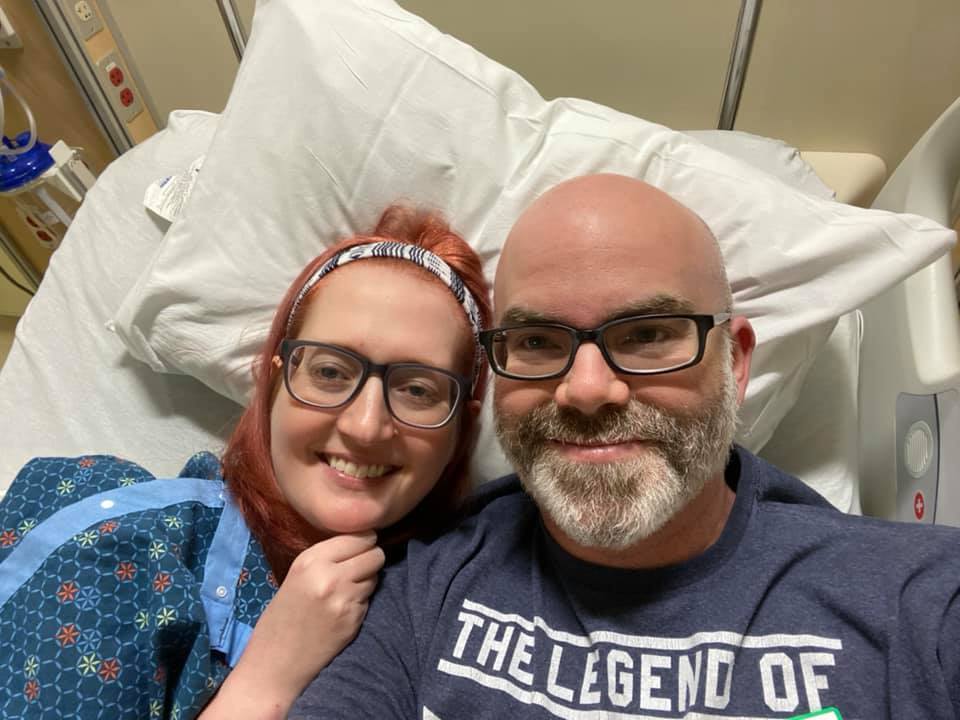
Why did you partner with Help Hope Live for transplant fundraising?
Unfortunately, I have seen multiple GoFundMe campaigns for transplant expenses that ended up not being legitimate. I wanted Help Hope Live’s nonprofit status attached to my own fundraising efforts, and I wanted donors to know that funds would be used exclusively for transplant-related expenses.
For people who aren’t familiar with congenital heart defects like mine, it can be hard to understand that someone can look much less sick than they really are. I liked that Help Hope Live provided medical verification to put donors at ease.
I wanted to fundraise with integrity, and Help Hope Live allowed me to do that.
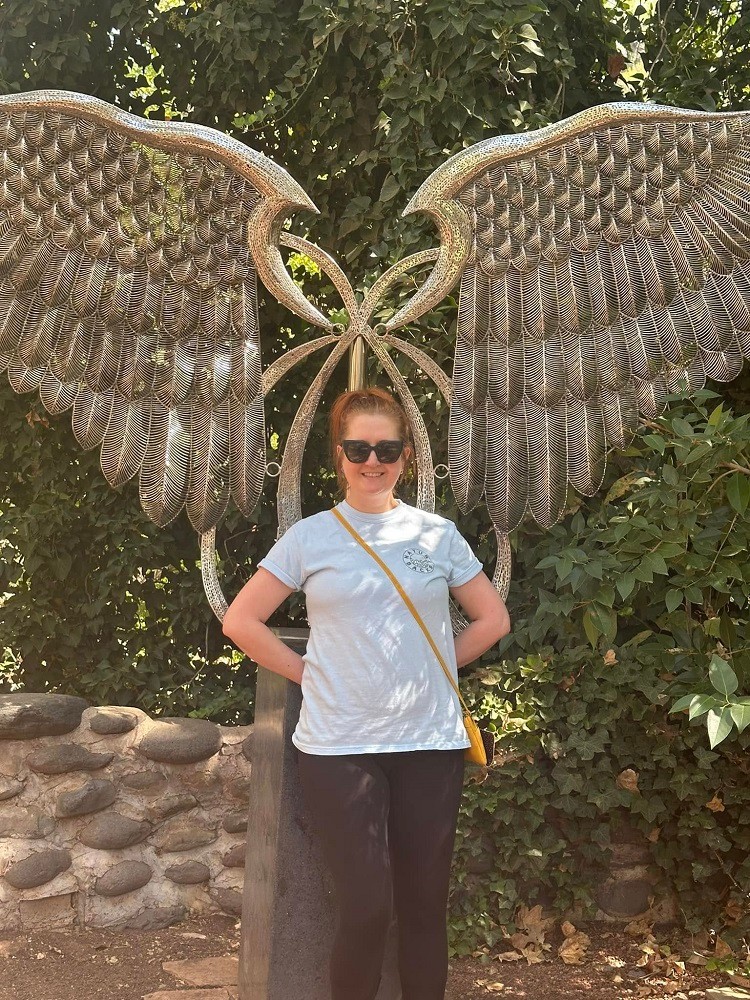
For people who are truly fundraising for medical expenses like me, GoFundMe is a horrible idea. It can impact their benefits and result in unexpected hurdles and fees.
I know I have been lucky to be able to manage my medical bills through fundraising, work, and insurance. Not everyone can. No one should have to choose between death and bankruptcy.
I love that Help Hope Live’s mission is to help prevent a medical crisis from becoming a financial disaster.
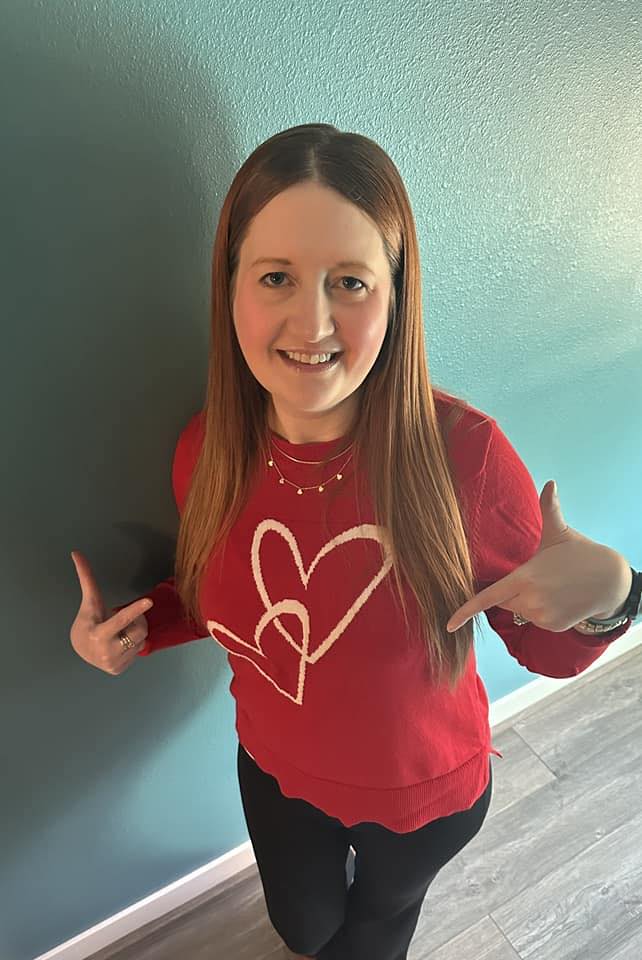
I had a great experience with Help Hope Live, and I was surprised that more people didn’t know about it. I became an Ambassador because I wanted to help create awareness in the transplant community about what a great resource Help Hope Live is.
Your connection to Help Hope Live grew even deeper after a chance meeting with Client Services Coordinator Jen Smilg—tell us about it.
The universe put Jen and I together.
My second year going to Red Rocks, we wound up sitting next to Jen and her husband. We started chatting, and soon we learned that she worked for Help Hope Live!
We became instant friends! When we returned to Red Rocks the following year, we made arrangements to sit next to each other again. We will be doing it again this year! Jen and her husband have become really amazing friends to us.
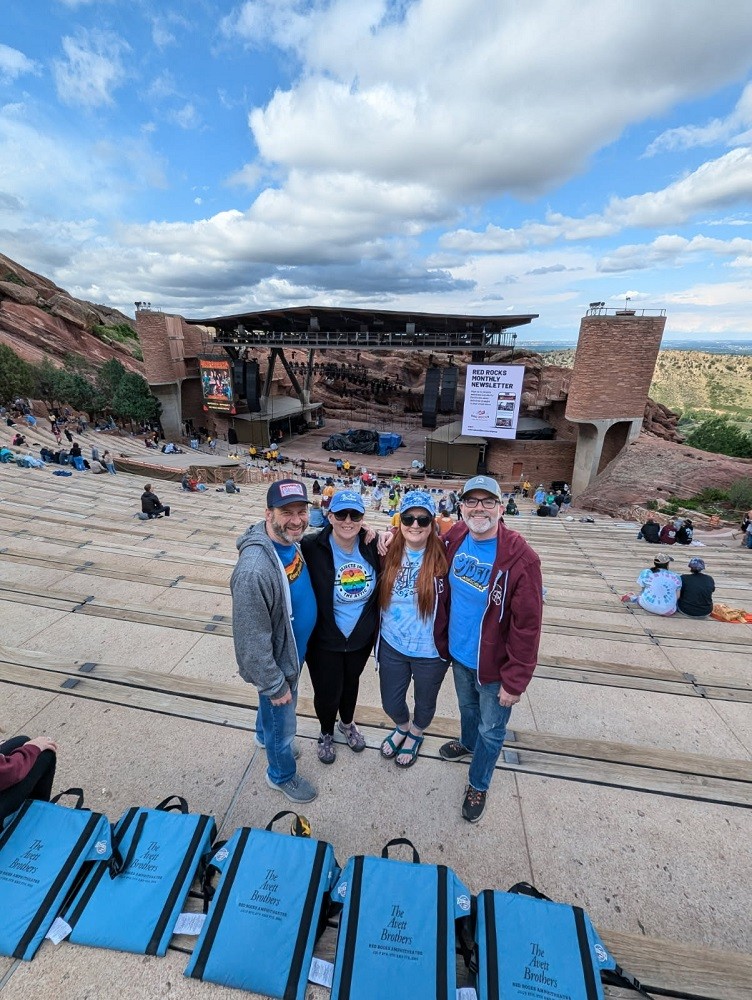
What does the word “hope” mean to you today?
Hope means that the things I want for my life do have a possibility of happening—growing old with my husband, watching my nephews graduate from high school, traveling, and having new adventures.
Hope is the freedom to dream bigger dreams.
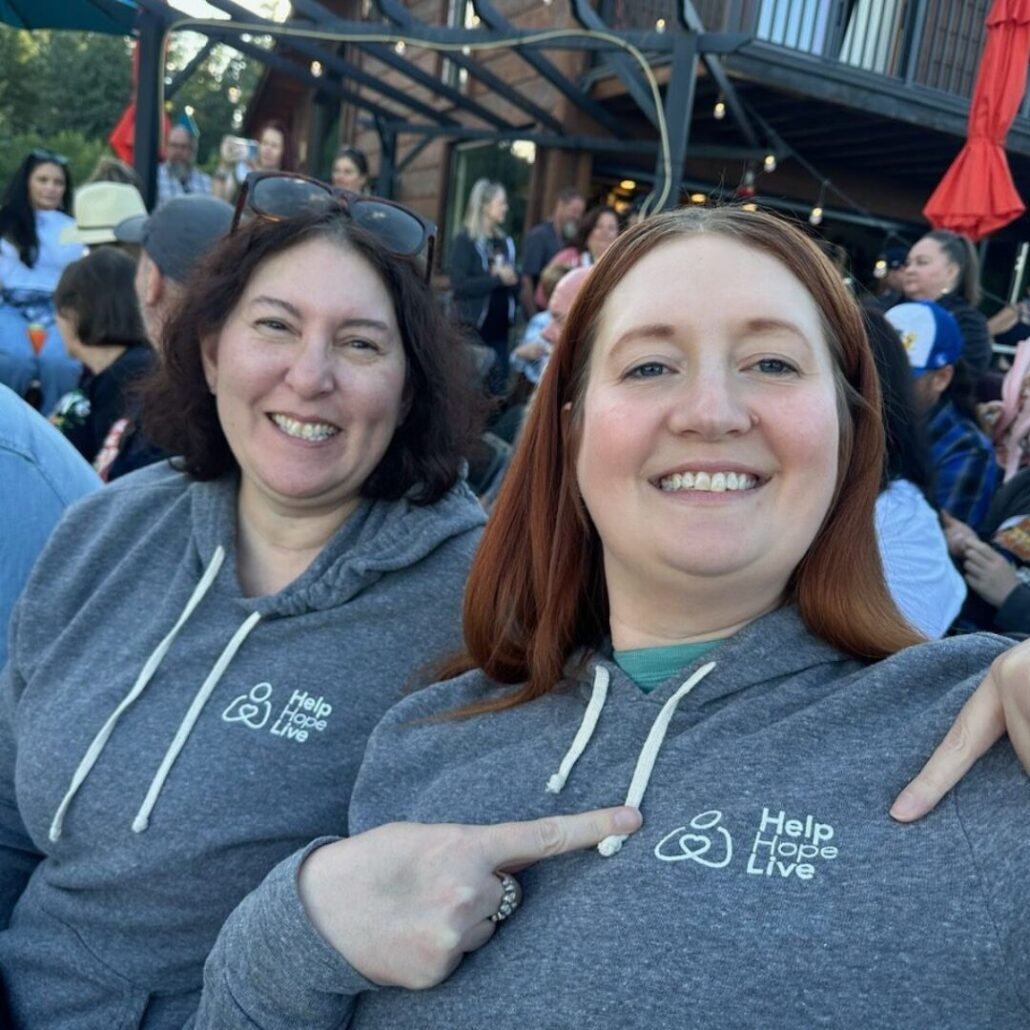
Make a donation in Liz’s honor at helphopelive.org and keep up with her post-transplant updates via The Feisty Fontan on Facebook and on Instagram.

